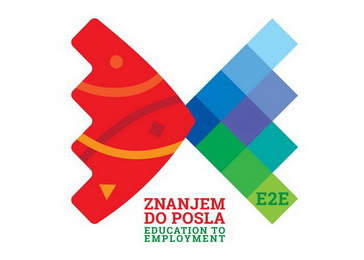 As part of the Education to Employment (E2E) programme, the Social Inclusion and Poverty Reduction Unit of the Government of the Republic of Serbia has mapped the current status of entrepreneurship in Serbia, focusing on relevant public policy documents and the legal framework in the Republic of Serbia. The analysis of the normative framework for entrepreneurship was implemented to update and redesign the Entrepreneurship Programme being implemented by the National Employment Service (NES), examining the views of beneficiaries of the Entrepreneurship Programme implemented by the NES and relevant stakeholders, through focus-group testing and interviews. Furthermore, a comparative analysis of the Entrepreneurship Programme with similar programmes in Serbia, the Western Balkans region, and select EU countries provides insight into the advantages and disadvantages of the entrepreneurship programme being implemented by the NES.
As part of the Education to Employment (E2E) programme, the Social Inclusion and Poverty Reduction Unit of the Government of the Republic of Serbia has mapped the current status of entrepreneurship in Serbia, focusing on relevant public policy documents and the legal framework in the Republic of Serbia. The analysis of the normative framework for entrepreneurship was implemented to update and redesign the Entrepreneurship Programme being implemented by the National Employment Service (NES), examining the views of beneficiaries of the Entrepreneurship Programme implemented by the NES and relevant stakeholders, through focus-group testing and interviews. Furthermore, a comparative analysis of the Entrepreneurship Programme with similar programmes in Serbia, the Western Balkans region, and select EU countries provides insight into the advantages and disadvantages of the entrepreneurship programme being implemented by the NES.
The objective of the analysis was to determine the feasibility and baseline for digitalising the NES Entrepreneurship Programme and complementing it with innovative services, such as psycho-social support, that would potentially be provided to beneficiaries as an additional form of support, alongside existing services.
The analysis reviews all four elements of the Entrepreneurship Programme (information and counselling, entrepreneur training, mentoring, and specialised services) and indicates that the current Entrepreneurship Programme is regulated by operational procedures, but it is not standardised enough to be digitalised. The fact that NES entrepreneurship training has not been implemented in an online environment to date is a particular indicator of the challenges of digitalisation.
The analysis has shown that the entrepreneurship programme is massive in character, since the basic training covers around 10,000 participants per year, with approximately 3,000 of them gaining the right to self-employment subsidies. The duration of entrepreneurship training should be extended to four days, to improve the quality of training and enrich it with new content. The mentor programme has been set up modestly, and should start already with the entrepreneurship training, and the relationship between mentors and beneficiaries should be more intensive and of higher quality. In this regard, the analysis has shown that the profile of trainer and mentor is not adequately defined regarding the required competences.
The domain of specialised training has shown that it is necessary to complete a list of predefined trainings (topics) the NES can offer its beneficiaries, based on the statistical significance of requests from previous years. Measuring the effects of the Programme is an area that needs to be improved through regular evaluations.
The analysis has shown that the digitalisation process needs to be preceded by a redesign of basic training, mentoring and specialised trainings. These improvements require between six months and one year of follow-up support. The digitalisation of the existing programme, if it remains regulated in the same way, would not provide the expected effects regarding the sustainability and vulnerability of the beneficiaries of the entrepreneurship programme, concludes the analysis.
 Government of the Republic of Serbia
Government of the Republic of Serbia















 pdf [271 KB]
pdf [271 KB]
Leave a Comment